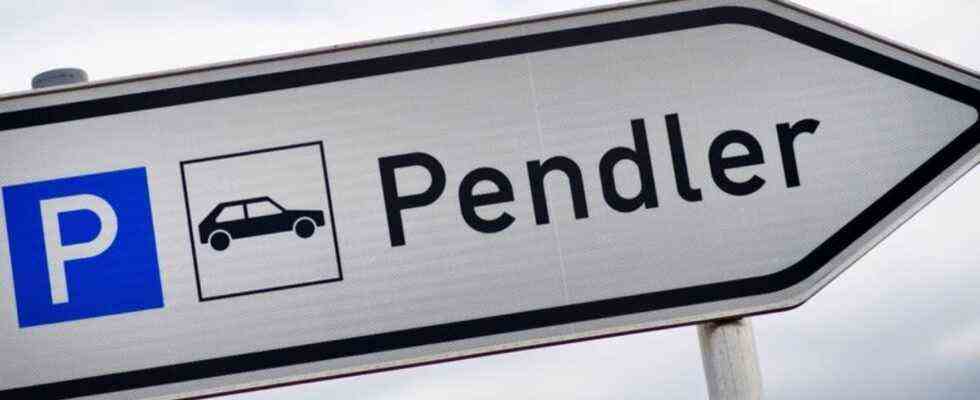steer
Will the commuter allowance be increased due to high fuel prices?
The commuting fee is currently 30 cents per kilometer up to the 20th kilometer and 35 cents per kilometer from the 21st kilometer. Photo: David-Wolfgang Ebener/dpa
© dpa-infocom GmbH
For weeks, the federal government has been considering how to relieve citizens of exploding energy prices. Now a flat rate is being discussed – climate protectors would prefer to abolish this instead of increasing it.
In view of the high fuel prices, the federal government is discussing adjusting the commuter allowance in the tax return.
Finance Minister Christian Lindner (FDP) was open to such a reform, which would primarily relieve employees and the self-employed with a long commute to work. The Greens, on the other hand, braked immediately: Aid should not further fuel “fossil inflation”.
With the commuter flat rate, the travel costs for the way to work can be tax deductible – regardless of which means of transport you use to travel. Critics consider it harmful to the climate because, from their point of view, it encourages people to live far away from work. According to the previous plan, the flat rate is to be gradually increased in the coming years in order to cushion the additional financial burden caused by the rising CO2 price.
“It would not fail because of the finance minister”
Lindner emphasized that there must be an agreement not only between the coalition partners SPD, Greens and FDP, but also between the federal states, in order to now shake up the commuter allowance to relieve the burden. “If there is an agreement to do something about it, the finance minister would not fail,” said the FDP politician on the “RTL Direkt” program. “Because in fact, in the broad middle of society, people are affected by the rising energy costs.” If German politicians agree to do something in the area of distance and commuter allowances, “then the finance minister would not fail – on the contrary!”
Green parliamentary group Vice-President Lisa Paus warned: “Now tinkering around with the commuter allowance is not very helpful.” Aid is needed “that acts specifically where it is most needed and does not continue to fuel fossil inflation,” she told the German Press Agency. The traffic light government is working on an overall package with relief, which, in addition to the heating cost subsidy for low earners, includes an immediate child allowance, the division of the CO2 price for heating costs between tenants and landlords and the fastest possible abolition of the EEG surcharge.
Districts and municipalities for Lindner’s initiative
SPD faction deputy Achim Post emphasized that effective relief for particularly affected population groups and companies are “sensible and necessary”. Regardless of the mix of measures, it is clear in any case: “We need a relief stimulus that has a short-term, targeted and socially just effect.” He also mentioned an earlier abolition of the EEG surcharge, if possible in the summer. “However, the implementation is not very easy, so that it is now necessary to quickly check whether and by when this is feasible,” he told the dpa.
Districts and municipalities consider Lindner’s initiative to be the right signal. “In view of rising energy prices, it is more than understandable to be able to deduct the increased costs for the journey to work from taxes,” said the President of the District Council, Reinhard Sager. This is very important for people in rural areas.
“We are also in favor of putting climate-damaging subsidies to the test,” he emphasized. “But that’s not the case with the commuter flat rate.” The lump sum is neither a subsidy nor a gift from the state, but ensures that you can freely choose your center of life and place of work. It is not for nothing that the German economy is so decentralized with many “hidden champions”, especially in rural areas. The Association of Towns and Municipalities also welcomed the initiative.
The group leaders of the Union in the federal and state governments specifically called for an increase in the commuter allowance to 38 cents from the first kilometer. It is currently 30 cents per kilometer up to the 20th kilometer and 35 cents per kilometer from the 21st kilometer.

